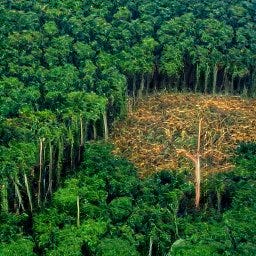"Question everything. Learn something. Answer nothing"
Euripides
The podcast issue
Not so Standard Deviations
The first thing I tell colleagues hoping to either write about geospatial analytics or speak about related topics is the importance of communicating stories. For example, to be a better writer you need to read. I don’t mean “how to do this or that”—that is a near-sighted approach. Go right to the compelling narratives and figure out what works and put your own spice and flavor on your version.
I listen to Roger and Hilary because between the dialogue and laughter they share a lot of insights. They are quick to include the caveat that it is their own thoughts and opinions and neither are beyond shifting an opinion when faced with additional data. This is how data scientists live their lives. Normal interests through the perspective of analysis, curiosity and even probability. And apparently, a lot of coffee…
Buried in their friendly banter was a pause to explore AI text to image. Obviously I couldn’t wait to finish my run and give it a go. Basically (you can get more details in the podcast) you enter a prompt and AI will generate an image. See the output below…
Artificial Intelligence (AI) text to image
One of my favorite magazines to read is The Economist. I was testing an AI model drawing image and entered “geospatial, rainforest, The Economist magazine” and this was my favorite rendered image. I could see this as a cover. It has their style.
To test the theory, how about geospatial, rainforest, Seurat? Can AI understand Pointillism? Rest easy my friends, the answer is yup.
Resources:
https://www.craiyon.com (formerly known as DALL-E mini)
https://openai.com/dall-e-2/ (paid options)
Open Street Map—Minds Behind Maps
Many of the readers here are in the field of geospatial analysis or data science. If you are not, or only tangentially associated, Open Street Map is the (sort of) proxy for Wikipedia for maps. It is perfect for creating examples and robust depictions of maps and snapshots of the world—but in true wiki fashion, there is certainly missing data and a few other issues but it also runs the mapping of your phone GPS, Facebook, and many other common tools you might not even realize have maps as an infrastructure or framework.
Minds Behind Maps is a long format podcast and a must listen for me as I continue to explore topics for future presentations and workshops.
ARI WALLACH— Rich Roll Podcast
We as a global society currently face challenges—some of which are existential in nature—that simply cannot be solved with the mindset, institutions, and paradigms currently in place.
If there was only one podcast for the rest of time—The Rich Roll Podcast would be my desert island podcast. This was the very first podcast that became a habit. He is an amazing athlete (ultra-runner) and vegan so I learn from him constantly within the context in which I live my life but the guests on his show are amazing.
For example, I was asked to speak at NASA Langley Research Center and as I thought about what I wanted to share I discovered Ari Wallach and his powerful conversation about Longpath. Not only did it generate the presentation ideas it has been a treasure trove of topics for ongoing contemplation and discussion.
I will share the presentation video with paid subscribers as soon as it is made available to me. You can subscribe here at any level…
Here are a few of the places I am headed in the next few weeks—a good mix of free conferences and Data Day Texas with a registration fee. Reach out if you want a code to save a few Benjamins…









